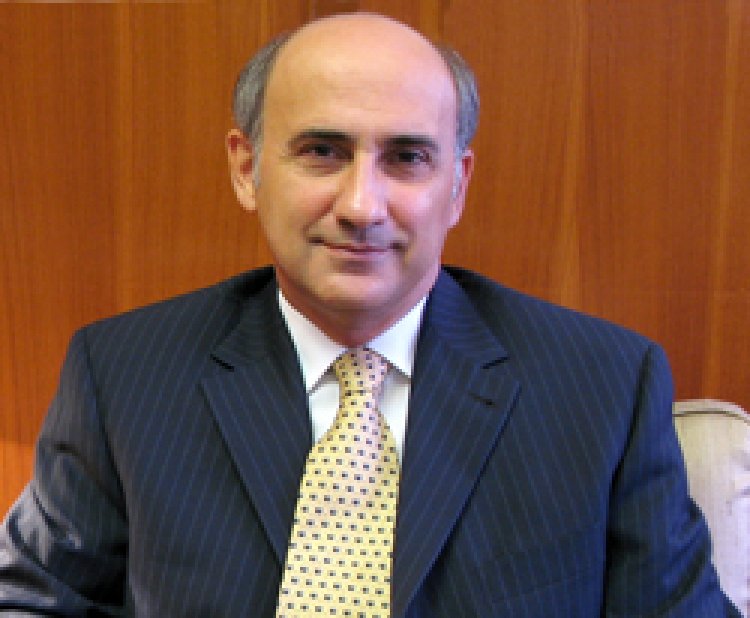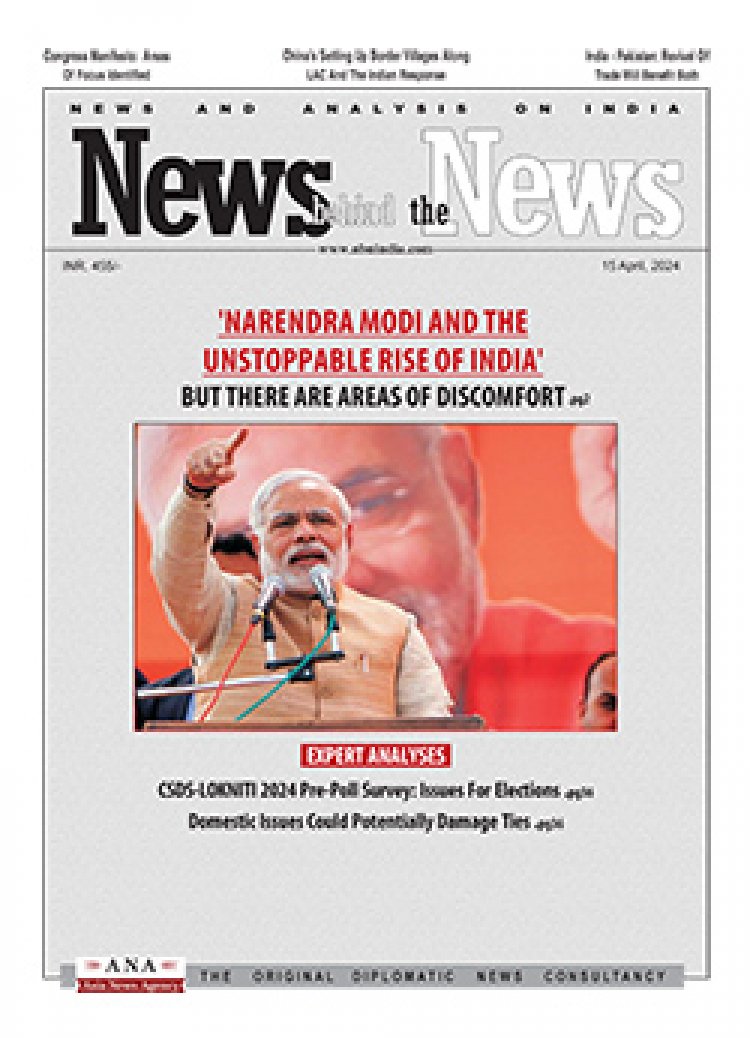H.E. Mr. M. Levent Bilman

India and Turkey have had a rich and diverse historical connection. To discuss the shared strengths and commonalities and the future of India-Turkey relations, ANA caught up with the Ambassador of Turkey in a face to face interview.
ANA: The visit of the Honourable Prime Minister of Turkey, Mr Recep Tayyip Erdogan, to India in November 2008 highlighted the revival of Indo-Turkish relationships. Your Excellency, what according to you are the common areas of interest that will take the relations between the two countries forward?
HE: Turkey and India enjoy many similarities and both are considered today to be among the powers to have influence beyond their respective regions. They greatly value their democratic, secular political structures, and focus on their development projects with rapidly growing liberal, market-oriented economies. We also have a common worldview on many issues and I believe that the two countries can substantially contribute to international efforts aimed at solving global problems. Combating terrorism, diversifying routes and suppliers of energy resources, strengthening energy security, fighting global warming and climate change, alleviating poverty; and working for regional stability and global peace are only a few areas that I can mention in this context.
ANA: The trade volume between India and Turkey almost tripled between 2003 and 2007, from US $ 795 million to US $ 2.6 billion. Your Prime Minister had mentioned a target of US $ 6 billion by 2010. In which sectors does Your Excellency see bilateral trade increasing? Could Your Excellency also shed some light on the proposed Free Trade Agreement (FTA) between India and Turkey?
HE: Indeed, during the visit of the Turkish Prime Minister to India in November 2008, acknowledging the upward trend in bilateral economic relations, Prime Ministers Erdogan and Manmohan Singh set a new target for the trade volume and expressed interest in starting negotiations for signing an FTA between the two countries. In fact, to follow up the Prime Ministers’ discussions, Indian Minister of Industry and Trade Anand Sharma was recently in Turkey. On this occasion the two sides held the ninth session of the Turkish- Indian Joint Committee for Economic and Technical Cooperation; decided to prepare a road map for 2010-2012 and expressed determination to encourage their companies to engage in joint investments in each other’s country. Infrastructure, construction and construction machinery; energy, pharmaceuticals, automotive, steel and iron industries; machinery for food processing and textile manufacturing, processing of precious and semi-precious stones, jewellery; and petroleum products are some of the promising sectors for both Turkish and Indian businessmen. As for the FTA, Turkey believes that signing of such an agreement will only pave the way for a “win-win” situation for both economies. In fact, Turkey has many FTAs with several countries and our experience shows a huge jump in bilateral trade for the benefit of both signatories of such an agreement. Moreover, Turkey enjoys Customs Union with the EU since 1996, and I believe this provides important opportunities to Indian companies to access the European markets. In order to further examine the FTA between Turkey and India, our experts are already scheduled to get together soon.
ANA: Your Excellency, in spite of the increase in their trade volume there is a concern in Turkey over the trade deficit largely in favour of India. What steps are being taken to improve Turkish exports to India
HE: It is a normal phenomenon that balance of trade between countries varies. This is due to several factors. As both economies of Turkey and India have been developing fast recently, there was a rapid and substantial growth in bilateral trade volume and this balance initially happened to develop in favour of India. The two Prime Ministers also discussed this subject in November last and decided to take measures to stimulate further growth of bilateral trade during which we hope the balance will also change. On the other hand, cooperation mechanisms between the Union of Chambers and Commodity Exchanges of Turkey (TOBB) and the CII; as well as the Turkish Industrialists’ and Businessmen’s Association (TUSIAD) and the FICCI have been in place; and the businessmen themselves are working on increasing the trade between the two countries. In fact, a FICCI delegation accompanied by Minister Sharma visited Turkey in September 2009 and a very productive business forum was organized in Ankara with the participation of both Trade Ministers. I believe that we will soon see similar contacts between Turkish and Indian businessmen and their chambers.
ANA: There has been mutual interest shown by the private sector of both India and Turkey in terms of investments in energy, construction, iron and steel, IT, mining and gems and jewellery. In fact Indian infrastructure company GMR has taken up the development of a major airport in Turkey. Which are the sectors in which Your Excellency sees potential for increased private sector investments between the two nations?
HE: The progress witnessed in the private sector investments hitherto is a clear sign of the interest towards each other. Turkey is the 3rd biggest in the World Construction List, with 23 global-size construction companies. They operate in more than 70 countries. These companies can take part in Indian infrastructure projects. Turkey is also the 3rd largest producer in the world of ceramics and mega yachts, and the 4th largest ship builder. We are the biggest producer in Europe of buses, cement, cotton, and refrigerators; also the 2nd biggest in TV production and ready-made garments. With the production of 1 million motor vehicles per year, Turkey is the 16th largest automotive producer with 17 recognized global brands. According to the UNCTAD, we are the 15th most attractive foreign investment (FDI) destination for 2008-2010. I wish to bring to the attention of Indian businessmen and investors that Turkey offers 100% tax deductions on R&D expenditures. As rapidly developing countries, another sector of great interest for India and Turkey is energy. Turkey’s location as a bridge for the most viable and safe energy routes and its position as a global energy hub, as well as India’s remarkable experience in renewable energy and natural gas can be the main denominators of exemplary cooperation in this field.
On the other hand, the IT, being one of the strongest sectors in India presents infinite opportunities for Turkish and Indian companies for investments. We closely focus on this area as well.
ANA: India and Turkey share a common agenda against terrorism. How do the two countries plan to increase cooperation to counter terrorism?
HE: This is an issue on which we have a common understanding; and Turkish-Indian engagement in the field of counter-terrorism is not new. We regard terrorism as a threat to peace and security; as well as a breach of the right to life. Terrorism has no boundaries; therefore bilateral and multilateral action is indispensable. You know that the issues of counter-terrorism and organized crime are closely interlinked. Within this framework, in 1998 the two countries signed a cooperation agreement in the field of combating illicit trafficking in narcotic drugs and psychotropic substances. Later, in 2003, we established a Joint Working Group, which had fruitful meetings over the years, tackling issues such as cooperative measures in fighting terrorism, international challenges and cooperation in multilateral fora. Currently, we are working on the modalities of further cooperation in this area.
ANA: There has been obvious emphasis on bilateral trade and commercial, political and defence ties. How important does Your Excellency consider people-to-people and cultural ties? What steps have been taken to promote cultural ties between the two nations
HE: I am glad you brought this matter up. In terms of historical, cultural and human contacts Turkey and India share a background that dates back to centuries ago. Many do not realize that even in the 1400s local kings in India exchanged embassies and letters with the Ottomans; and Babur, who established an empire in India, actually wrote his memoirs in Turkish. Many also do not know that in the 1500s, answering the call of the regional rulers in India, the Ottomans sent thousands of soldiers to India. In order to raise public awareness in India on today’s Turkey in general, as well as on our historical links; the Turkish Embassy in New Delhi organizes lectures and cultural programmes. About two years ago we opened a Culture and Tourism Office in the Embassy. This year for the first time, after a long break, we organized a Turkish Film Festival with seven internationally recognized films, in October, and I believe this event was quite successful in terms of reintroducing Turkish cinema to the Indian people. We also organized a Turkish Food Festival in New Delhi on 21-29 October 2009. Similar programmes will follow in the future. I would also like to say that the initiation of daily direct flights of Turkish Airlines from both Delhi and Mumbai to Istanbul has been a positive development. It has not only helped businesses of both countries, but at the same time paved the way for easier and frequent people-to-people interaction.
















